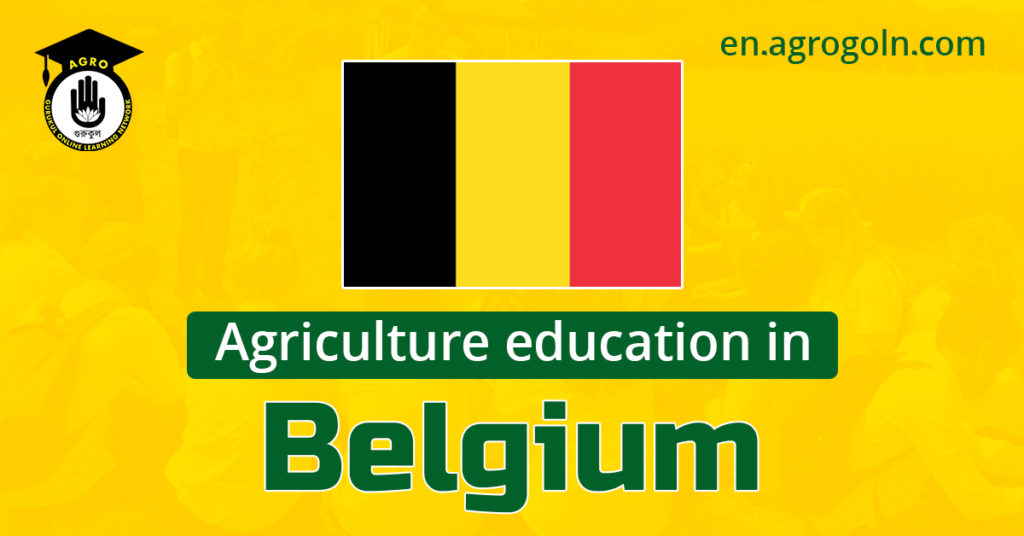Agricultural Education in Belgium: Nurturing Innovation and Sustainability in the Heart of Europe. Agriculture has been a vital component of Belgium’s rich cultural and economic landscape for centuries. With its diverse agricultural practices, innovative techniques, and commitment to sustainability, Belgium has emerged as a key player in the European agricultural sector. At the core of this success lies the country’s robust agricultural education system, which equips students with the knowledge and skills necessary to thrive in the dynamic world of modern agriculture. In this article, we will explore the history, structure, and significance of agricultural education in Belgium, as well as its role in shaping the nation’s agricultural sector.
Agricultural Education in Belgium: Nurturing Innovation and Sustainability in the Heart of Europe
Historical Overview of Agricultural Education in Belgium
Belgium’s commitment to agricultural education can be traced back to the late 19th century when the government recognized the need to enhance the productivity and efficiency of the agricultural sector. Agricultural schools were established to train farmers in modern techniques and scientific methods, laying the foundation for the country’s agricultural education system.
In the early 20th century, Belgium witnessed significant advancements in agricultural research and education, culminating in the establishment of specialized institutions and universities dedicated to agricultural studies. Today, these institutions play a pivotal role in training the next generation of farmers, researchers, and agribusiness professionals.
Structure of Agricultural Education
Belgium’s agricultural education system is comprehensive and multifaceted, catering to a wide range of interests and aspirations within the agricultural sector. The system is structured into different levels, providing educational opportunities for students at various stages of their academic journey.
- Secondary Agricultural Education: At the secondary level, students can pursue agricultural studies at technical and vocational schools. These schools offer programs that combine theoretical knowledge with practical training in areas such as crop production, animal husbandry, horticulture, and agricultural mechanics.
- Higher Agricultural Education: For students aspiring to pursue more specialized and advanced studies in agriculture, Belgium offers higher education programs at various universities and institutions. The renowned Gembloux Agro-Bio Tech, a faculty of the University of Liège, stands as one of the country’s premier institutions for agricultural and environmental sciences. It offers a diverse range of undergraduate and graduate programs in agronomy, bioscience engineering, environmental management, and food science.
- Research and Innovation: Belgium places a strong emphasis on agricultural research and innovation. Research centers and institutes collaborate with academic institutions and industry stakeholders to address the challenges facing the agricultural sector, such as sustainable agriculture, food security, and climate change adaptation.
Curriculum and Focus Areas
The curriculum of agricultural education in Belgium is designed to equip students with a holistic understanding of modern agriculture, integrating scientific principles, technical skills, and business acumen. Students are exposed to a wide range of subjects, including plant and animal sciences, soil management, crop protection, agricultural economics, and agribusiness management.
Additionally, the curriculum emphasizes sustainable and environmentally conscious practices, encouraging students to explore innovative approaches to minimize the ecological footprint of agriculture. This focus on sustainability aligns with Belgium’s commitment to the European Union’s Common Agricultural Policy (CAP), which emphasizes sustainable farming practices, biodiversity preservation, and rural development.
Practical Training and Hands-On Learning
One of the defining features of agricultural education in Belgium is its strong emphasis on practical training and hands-on learning. Students are exposed to real-world scenarios, allowing them to apply their theoretical knowledge in fieldwork, farm visits, and laboratory research. This approach not only enhances their technical skills but also fosters a deep connection with the agricultural sector.
Moreover, Belgium’s agricultural education system fosters industry-academia collaborations, providing students with opportunities for internships, research projects, and exchange programs with leading agribusinesses and research institutions. These experiences enrich their learning and expose them to the latest advancements in the agricultural field.
Agricultural Education for Sustainable Development
Belgium’s commitment to sustainable development extends beyond the curriculum. The country actively promotes research and innovation in sustainable agriculture, with a focus on reducing environmental impact and promoting biodiversity. Institutions like Gembloux Agro-Bio Tech and the Institute for Agricultural and Fisheries Research (ILVO) are at the forefront of sustainability-focused research, striving to develop innovative solutions for a more resilient and environmentally friendly agriculture.
Challenges and Opportunities
While Belgium’s agricultural education system boasts significant achievements, it also faces certain challenges. One of the primary challenges is attracting young talent to pursue careers in agriculture. As urbanization and industrialization increase, fewer young people are considering farming as a viable career option. As a result, the agricultural sector faces a potential labor shortage in the future.
To address this challenge, Belgium’s agricultural education system is working to promote the diverse and rewarding opportunities that exist within the sector. This includes highlighting the role of technology, innovation, and sustainability in modern farming, as well as fostering entrepreneurship in agribusiness and farm management.
Conclusion
Agricultural education in Belgium is not only about imparting knowledge and skills; it is about nurturing a sustainable and prosperous agricultural sector for the future. Through a combination of rigorous academic programs, practical training, and cutting-edge research, Belgium’s agricultural education system equips students with the tools to tackle the challenges and embrace the opportunities of modern agriculture.
By fostering a culture of innovation, sustainability, and collaboration, Belgium is laying the foundation for a dynamic and resilient agricultural sector that can thrive in the face of evolving global challenges. As the world looks towards sustainable and responsible agriculture, Belgium stands as a shining example of how agricultural education can pave the way for a brighter and more prosperous future for the agricultural sector in the heart of Europe.
See more:

